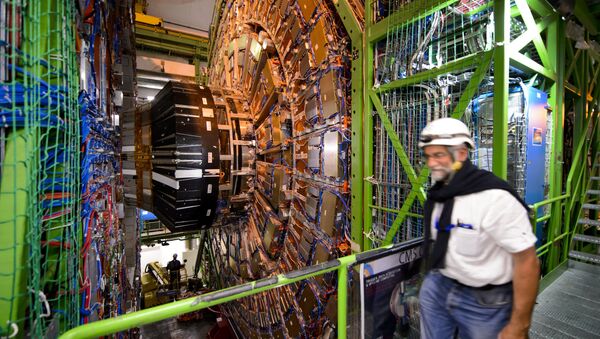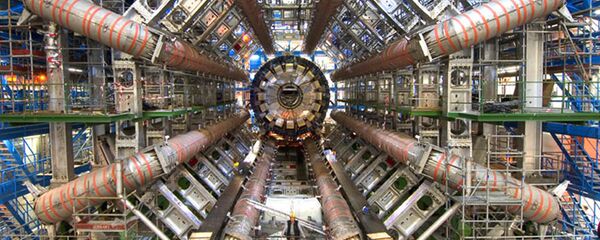According to The Guardian, the upgrade will make the LHC more sensitive to subtle quirks in the laws of physics, with the scientists hoping that it will pave the way for the new theories of the universe.
With the upgrade implemented, the number of collisions in the machine will be five to 10 times greater than today.
"The high-luminosity LHC is where we will collect most of our data, and in that sense it is the phase of our exploration that lets us find out most about the universe. If the LHC so far has given us a candle to illuminate what was previously unseen, the high-luminosity LHC will let us shine a searchlight," Tara Shears, a professor of physics at Liverpool University who works on the project, said, as quoted by the newspaper.
READ MORE: Russia Retracted CERN Membership Application
The LHC, the world's largest and most powerful particle accelerator, was set up in 2008 with the view of gaining an insight into the mystery of dark matter. It consists of a 27-kilometer (17-mile) ring of superconducting magnets with several accelerating structures increasing the energy of particles.


